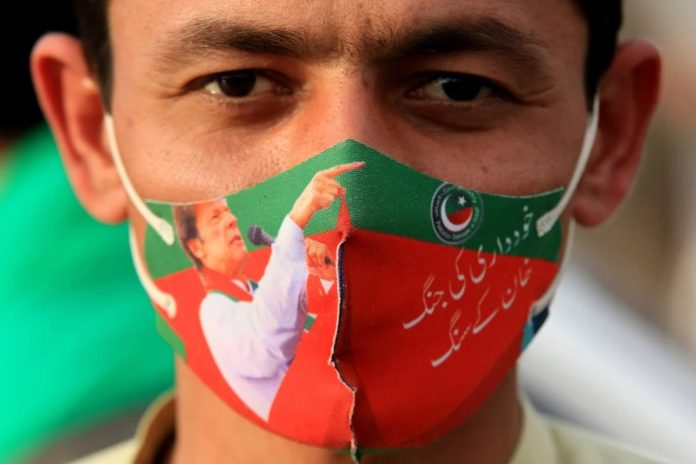Pakistan’s military has long meddled in the country’s democratic process, manipulating election outcomes to maintain its hold on power. While the public casts their votes, the military ensures that only its preferred parties or leaders emerge victorious through various means. This managed political system has provided stability in power transitions but at the expense of genuine representative governance. However, the recent removal of former prime minister Imran Khan, once backed by the military, has disrupted this established process and created turmoil.
Since Pakistan’s independence in 1947, the army has staged three direct coups in 1958, 1977, and 1999 when civilian governments fell out of favor with the military. These overt power seizures revealed who truly rules the country. Even when not formally in power, the generals have exerted control over weak civilian governments through indirect methods.
“In almost pendulum-like fashion, it appears the military has gone from governorship back to guardianship,” wrote expert Aqil Shah in his book, The Army and Democracy. The military has justified its interventions by presenting themselves as saviors against corrupt civilians. However, the real motive has been to safeguard the military’s privileged position and substantial business interests, estimated to be worth over US$100 billion, or more than a quarter of Pakistan’s gross domestic product.
In 2018, the military supported Imran Khan’s rise to power, ousting Nawaz Sharif from the prime minister’s position. Khan’s ascent bore the hallmarks of behind-the-scenes manipulation. The generals assisted Khan by weakening Sharif through court cases that led to his disqualification. Meanwhile, the military influenced various institutions to tip the scales in favor of Khan’s Pakistan Tehreek-e-Insaf (PTI) party.
However, Khan’s relationship with the generals turned adversarial after he became prime minister and disagreed with them on key domestic and foreign policies. He claimed to have been pressured by then army chief General Qamar Javed Bajwa to realign policies as desired by the military brass.
Khan resisted the military’s assertive control and accused it of conspiring with the US to orchestrate his removal. In response, the military-intelligence complex withdrew its support for Khan and started building alliances with his political opponents. It is widely believed that the military coerced Khan’s coalition partners and allies to defect, facilitated a no-confidence motion in parliament in April 2022, and ensured its success through manipulative tactics. These moves culminated in Khan’s dramatic midnight removal from office.
Unlike previous ousted leaders who accepted their fate, Khan tapped into his widespread popularity and resisted rather than quietly stepping aside. He held large public rallies demanding early elections. When Khan threatened to dissolve provincial assemblies using his power, the military establishment struck back forcefully. He was arrested and imprisoned on flimsy pretexts and trumped-up charges.
This attempt to force Khan into submission backfired. Outraged PTI supporters attacked security forces and government buildings following their leader’s arrest. In the ensuing elections held amidst this charged atmosphere, the military establishment allegedly resorted to vote rigging and voter suppression to boost Nawaz Sharif’s Pakistan Muslim League-Nawaz (PML-N) party. However, independent candidates backed by the PTI still emerged as the biggest winners, securing 101 seats out of 264. Khan’s bold defiance of the military establishment’s political engineering has disrupted their managed transition of power.
With no clear winner, Pakistan’s major political parties have formed a coalition government to secure a majority. The PML-N led by Nawaz Sharif and the Pakistan Peoples Party (PPP) led by Bilawal Bhutto Zardari, longtime rivals, have joined hands. Shehbaz Sharif of the PML-N party is expected to be the nominee for the next prime minister, and discussions are underway regarding cabinet portfolios. This political alliance, driven by the necessity of keeping Khan out of power, is fragile and requires a delicate balance of competing interests and personalities. The next prime minister will need to accommodate the demands of coalition partners while addressing economic crises. With a slim majority, tensions may arise over unpopular decisions, potentially leading to a collapse. Its success largely depends on appeasing the military establishment while buying time for public support.
Installing an unreliable unity government through back-door deals would only temporarily mask the deep divisions in Pakistan’s political landscape. Such a government is unlikely to last long or bring true stability. With Khan’s popularity remaining intact, only free and fair elections conducted under neutral oversight can bring stability to Pakistan’s chaotic environment.
The country stands on the brink of a democratic breakthrough, but it requires the all-powerful military to make the historic decision to yield space to civilian supremacy. The pivotal question for the country’s future direction is whether the military establishment will accept a scaling back of its intervention. Allowing civilian supremacy risks undermining the military’s corporate interests and agenda, while continuing with a controlled democracy is also unsustainable, as demonstrated by the popular support that figures like Khan can garner. The generals have a choice: recalibrate and allow representative politics to flourish or risk rebelling against an idea whose time has come.


